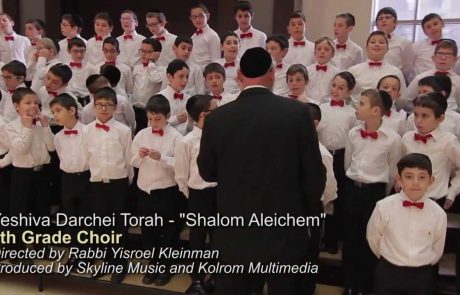Archive for 2017
Which Biblical Woman Was the Original Eishet Chayil?
This essay discusses some theories as to which biblical woman the poem, Eishet Chayil, could be referring. The author, Asher Gabbay,
Yeshiva Darchei Torah Boys Choir: Benny Friedman’s Shalom Aleichem
In this video, the 5th grade boys of Yeshiva Darchei Torah Boys Choir of Far Rockaway, NY perform Shalom Aleichem using
Gabriel Chouraki: Shalom Aleichem Melody on Violin
This video shows Gabriel Chouraki, a French-Israeli classical violinist, conductor, and Musician of Excellence in the Israeli Defense Forces, performing one
Complete Ashkenazi Grace After Meals (Hebrew Text)
The following Hebrew text presents the Ashkenazi custom for the Grace After Meals from Tefillos.com. This is useful resource for Ashkenazi Jews
A Creative Lesson Plan to Teach the Grace After Meals to Students
This twelve-part lesson plan from The Lookstein Center for Jewish Education aims to teach middle school students the meaning and purpose
Some Technical Laws of the Grace After Meals
In this highly technical article from Aish.com, Rabbis Chaim Gross and Shraga Simmons explain the sources, structure, and intricate halachot (laws)
Reform Abbreviated Grace After Meals (Audio & Text)
This post includes an audio recording of an abbreviated version of the Grace After Meals, accompanied by the Hebrew, English, and and
Eishet Chayil: A Template for Modern Women
In this article, a modern woman who lives by Jewish tradition explains why she feels that Eishet Chayil is very
Mordechai Ben David: Shalom Aleichem
This video presents an original tune for Shalom Aleichem, composed and performed by Mordechai Ben David, a popular American Hasidic singer and
Why We Recite Eishet Chayil on Friday Night
In order to explain why Eishet Chayil is traditionally sung on Shabbat, this detailed article by Rabbi Yehuda Shuprin offers insight into










